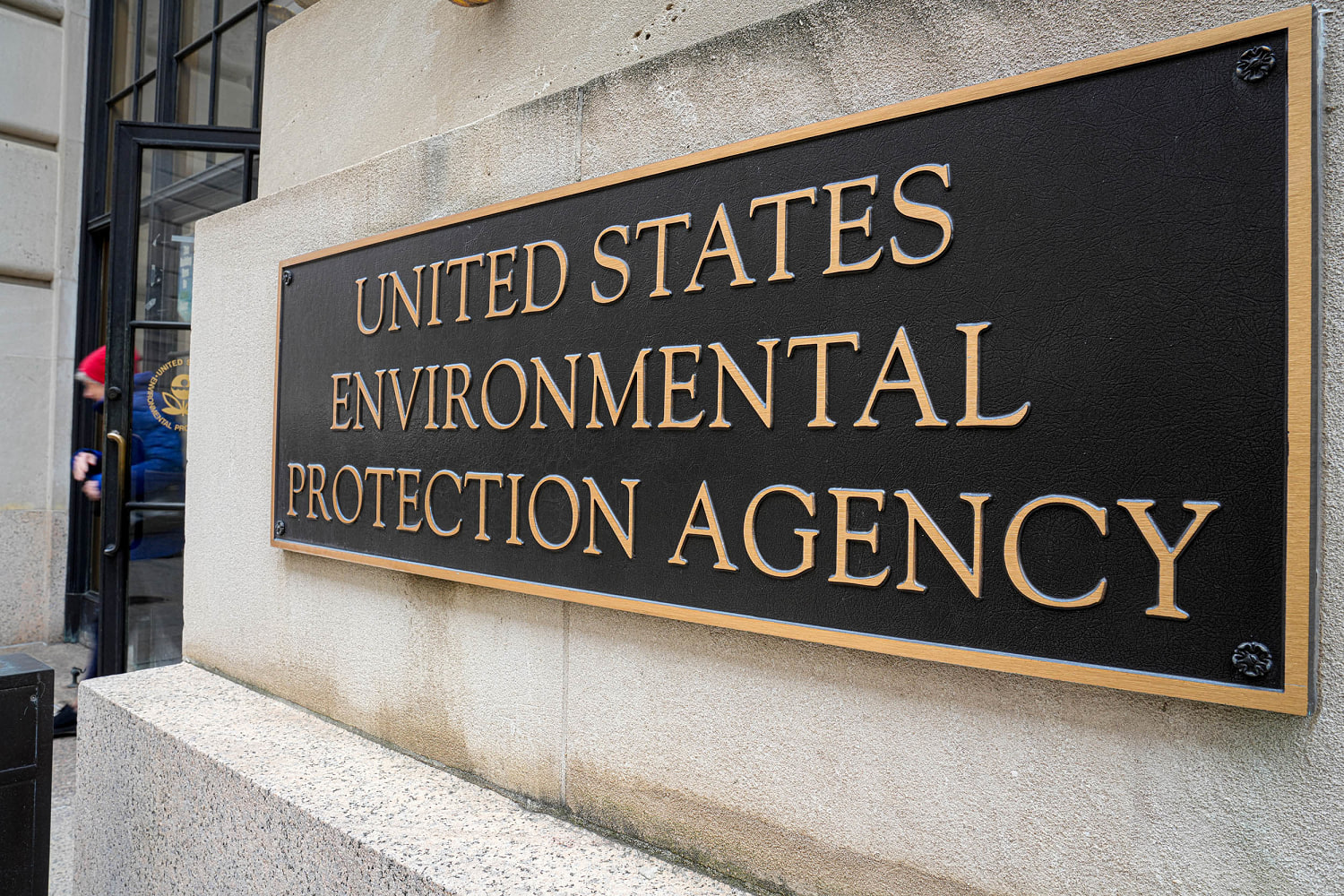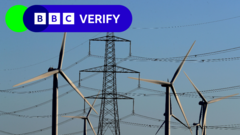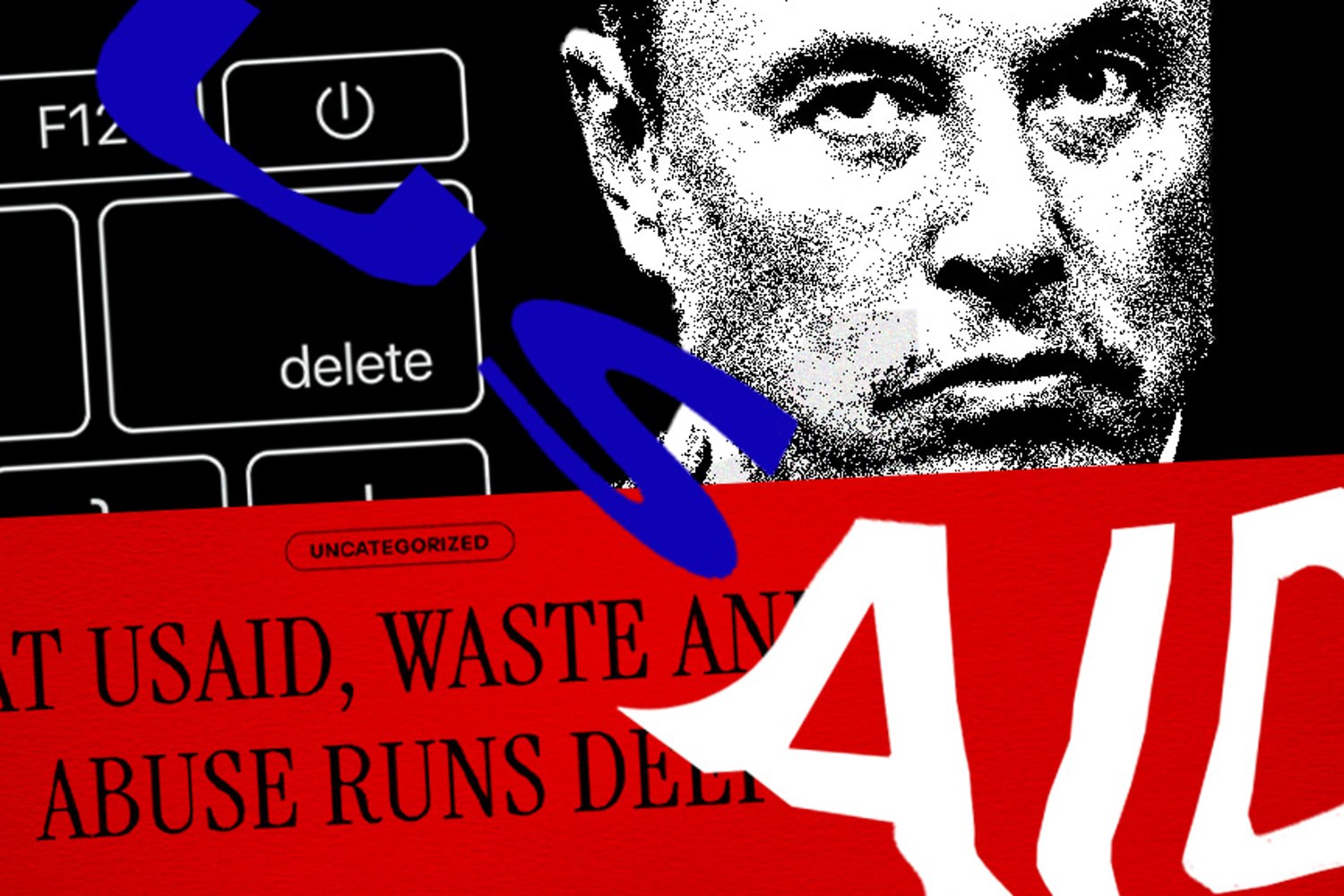This week, Trump shut down USAID. Here’s why China is cheering.

This week, hundreds of USAID employees were blocked from entering headquarters and locked out of their work accounts after Department of Government Efficiency chief Elon Musk announced that he and President Trump had agreed to shut down the agency. The consequences of this decision will stretch far beyond budget sheets and bureaucratic reorganization — it marks a massive strategic victory for China.
Since its establishment in 1961 by President John F. Kennedy, USAID has been one of America’s most powerful tools for global influence, providing billions of dollars in development assistance to countries in need while promoting governance, transparency and economic independence. But beyond foreign aid, it has served as a counterbalance to China’s global ambitions, particularly through its Belt and Road Initiative. By shuttering USAID, the U.S. is handing Beijing the opportunity to expand its economic and political dominance unchecked.
China’s Belt and Road Initiative, launched in 2013, has been marketed as an infrastructure project, but in reality is a powerful geopolitical strategy. Through massive loans for roads, ports and railways, China has woven itself into the economic fabric of more than 150 countries, often leaving them saddled with unsustainable debt. These debts come with strings attached: when countries struggle to pay, China seizes strategic assets, like Sri Lanka’s Hambantota Port, or exerts political pressure to secure favorable trade deals, military access or diplomatic support.
For example, China signed Belt and Road agreements with Kiribati and the Solomon Islands, contingent on both countries halting their diplomatic recognition of Taiwan. Along with the BRI agreement, the Solomon Islands also signed a security agreement with China, with plans to expand the Honiara port. Many Chinese-financed ports and infrastructure projects are “dual-use,” meaning they can support both commercial shipping and military operations.
USAID has been a critical force in countering this expansion. Through grant-based infrastructure projects, governance assistance and economic development programs, the U.S. has provided an alternative to Beijing’s exploitative financing.
Unlike China’s predatory loans, USAID initiatives do not demand sovereignty concessions, military basing rights or political compliance. They promote long-term stability and economic self-sufficiency rather than debt dependency. With its elimination, the U.S. is effectively abandoning its ability to shape the global development landscape, allowing China to deepen its military footprint in critical regions.
With USAID dismantled, China’s ability to entrench its economic influence will accelerate. Countries that once had a choice between American-backed development and Chinese loans will now find themselves with only one option: Beijing.
This is not just a foreign policy concern — it has direct consequences for U.S. national security. As China gains greater control over key global trade routes, it can leverage its infrastructure dominance in future conflicts. A more emboldened China, with economic and military leverage over dozens of countries, will make it even harder for the U.S. to counter Beijing’s assertiveness in the South China Sea, Taiwan and beyond.
The shutdown of USAID is more than a budgetary decision — it signals an American retreat from global leadership. Foreign aid has long been a tool for diplomatic engagement, allowing the U.S. to build alliances, foster goodwill and promote stability in regions vulnerable to authoritarian influence. USAID has been instrumental in this, strengthening U.S. partnerships and maintaining influence in regions where direct military presence would be unfeasible or undesirable.
China, by contrast, views foreign assistance as a means of consolidating power. Through the Belt and Road Initiative, it has secured votes at the United Nations, expanded its economic dependencies and pressured governments into aligning with its geopolitical objectives.
Now, the message to the world is clear: America is withdrawing, and China is ready to fill the void.
Trump’s decision to shut down USAID is not just a cost-cutting measure — it is a fundamental shift in America’s global posture. Without a U.S.-led alternative, Beijing’s coercive diplomacy will spread unchecked, leaving nations vulnerable to debt traps, military encroachment and authoritarian influence.
At a time when China is making aggressive moves to reshape global power structures, America should be strengthening its influence, not abandoning the field. This decision will reshape the world order, signaling an abandonment of democratic values on the world stage.
For decades, USAID has promoted free elections, independent media, human rights and the rule of law, pillars of democracy that counterbalance authoritarian regimes. It has supported grassroots movements fighting for civil liberties, helped nations build transparent institutions and provided an alternative to governance models based on repression and state control.
Without USAID, China will be free to deepen its influence, empowering regimes that silence opposition, restrict press freedoms and erode the rights of their citizens. The loss of USAID is China’s gain, and that is a price the U.S. cannot afford to pay.
Emily Suh is a third-year student at Stanford University and a former intern at USAID.
-

Schools on 4 Greek islands will stay shut next week as earthquakes continue
Schools on four Greek islands will remain closed through next week as earthquakes continue to rattle the regionABC News - 25m -

PSN Still Down After 15 Hours: Here Is Sony's Response
Online services for popular networks go down or suffer intermittent issues from time to time, and that's exactly what's going on now for Sony's PlayStation Network. On Friday evening, players began ...GameSpot - 1h -
China’s economic miracle appears to be in the past. Here’s why the future looks bleaker and bleaker.
Weak consumption, an aging population and an exodus of personal wealth from the country put China on a perilous path.MarketWatch - 4h -

Staff let go, map tool shut down in tumultuous week at EPA
EPA staffers have had to contend with dramatic shake-ups. About 1,100 employees were told they could be terminated, and then 168 staffers were put on leave.NBC News - 4h -
Here are some of this week’s biggest stock winners and losers in the portfolio
Every weekday, the Investing Club releases the Homestretch; an actionable afternoon update just in time for the last hour of trading.CNBC - 21h -

If the UK has more renewable energy, why aren't bills coming down?
The government has pledged to reduce energy bills by using more renewables, but bills are currently rising.BBC News - 21h -

How Elon Musk boosted false USAID conspiracy theories to shut down global aid
Elon Musk drove fringe viewpoints on USAID into the mainstream on X, as the Trump administration halted the humanitarian relief agency’s work.NBC News - 1d -

Judge Pauses Elements of Trump Plan to Shut Down U.S.A.I.D.
Judge Carl Nichols temporarily blocked plans to put 2,200 employees on paid leave and recall nearly all agency workers abroad. He also temporarily reinstated 500 workers already on leave.The New York Times - 10h -
Trump says he’ll roll out reciprocal tariffs next week. Here are his possible targets.
President Donald Trump on Friday said his administration would soon have an announcement about reciprocal tariffs. Peter Navarro, a longtime adviser to the president, has a target list for him.MarketWatch - 18h
More from The Hill
-

Elon Musk and how the left makes monsters of us all
Liberals are finding out that when you try to silence all dissent, you create thousands of outcasts.The Hill - 21m -

Trump slams Biden over paper straws, declares mandate ‘is dead’
President Trump in an early Saturday post slammed former President Biden over what he called the previous administration's mandate against plastic straws. "Crooked Joe’s MANDATE, 'NO PLASTIC ...The Hill - 27m -

FEC commissioner ‘considering all of my options’ after ouster by Trump
The former Federal Election Commission (FEC) chair Ellen Weintraub said during an interview that she is weighing her choices after her ouster from the post by President Trump earlier this week. ...The Hill - 41m -

Congress must prevent a mass-amnesty for COVID fraud
Don't give criminals and fraudsters a “get out of jail free” card for COVID fraud.The Hill - 51m -

Democrats call stop work order at CFPB 'illegal'
Democrats are calling on Treasury Secretary Scott Bessent to cancel his stop work order for the Consumer Financial Protection Bureau (CFPB) after employees with Elon Musk’s Department of Government ...The Hill - 51m
More in Politics
-

Elon Musk and how the left makes monsters of us all
Liberals are finding out that when you try to silence all dissent, you create thousands of outcasts.The Hill - 21m -

Trump slams Biden over paper straws, declares mandate ‘is dead’
President Trump in an early Saturday post slammed former President Biden over what he called the previous administration's mandate against plastic straws. "Crooked Joe’s MANDATE, 'NO PLASTIC ...The Hill - 27m -

FEC commissioner ‘considering all of my options’ after ouster by Trump
The former Federal Election Commission (FEC) chair Ellen Weintraub said during an interview that she is weighing her choices after her ouster from the post by President Trump earlier this week. ...The Hill - 41m -

Democrats call stop work order at CFPB 'illegal'
Democrats are calling on Treasury Secretary Scott Bessent to cancel his stop work order for the Consumer Financial Protection Bureau (CFPB) after employees with Elon Musk’s Department of Government ...The Hill - 51m -

Congress must prevent a mass-amnesty for COVID fraud
Don't give criminals and fraudsters a “get out of jail free” card for COVID fraud.The Hill - 51m